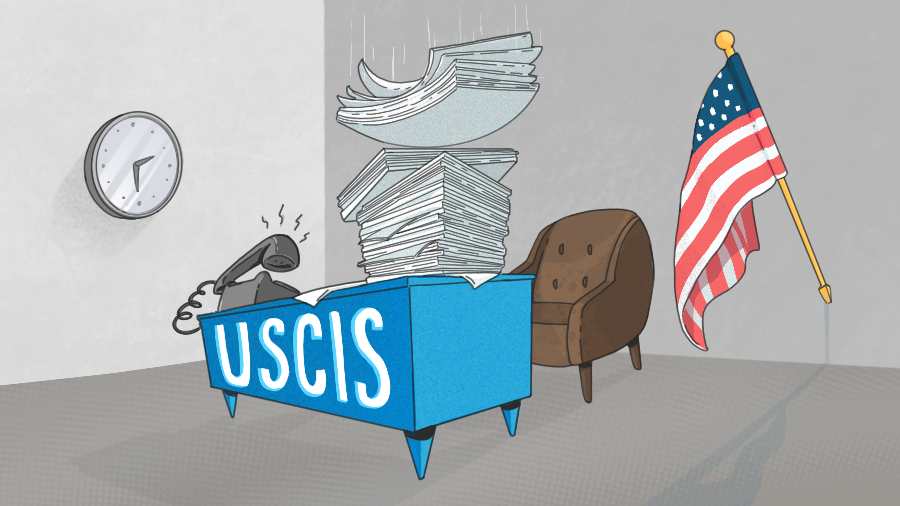Barbara Janczer, who says she was hired as the youngest female product manager in the history of Splunk, was unable to secure a visa through the SF-based company’s lawyers due to the lottery system. So she hired her own immigration lawyers, paid over $10,000 out of pocket, and hoped for the best as she tried for a second H-1B visa.
In this second swing, Janczer has been met with a “Request for Evidence,” commonly known as an RFE, a document the United States government sends out to candidates looking to secure a visa as an added step in the immigration process. Simply put, an RFE request means the government wants more proof of someone’s candidacy before denying or accepting a visa application that allows a foreign national to work in the United States. And according to Janczer, if you’re not a “Forbes 30 under 30 or a Nobel Prize Winner, it’s hard” to prove.
A few days ago she filed the RFE. If she is denied, moving to Canada, a country with less stringent immigration laws, is an option, she said. But the lack of clarity impacts more than just a paycheck from Splunk—it touches on every part of her future.
“You can’t plan anything,” Janczer said. “You can’t plan to, you know, buy nice furniture because you don’t know if you’re going to be here next year… being uprooted is like this dooming sword hanging over you.”
Janczer is not an exception. Over time, the United States government has quietly increased how many RFE demands it sends out to candidates looking to secure an H-1B visa. In 2015, according to the U.S. Citizen and Immigration Services (USCIS), there were 67,315 visas with RFE documentation processed. In 2018, 150,606 visas with RFE documentation were processed—an increase of 124 percent.
And with more RFE demands have come more denials for visas. The acceptance of visa petitions with RFEs dropped by almost 15 percent in January 2017, when President Donald J. Trump was inaugurated. The chart below unpacks the decline in acceptances over time:

A number of professionals pointed to Trump’s “Buy American and Hire American” Executive Order as a catalyst for the increase in denials. His administration’s mandate to “prevent fraud within the immigration system” imposed policies to ensure H-1B visas are awarded to the “most-skilled or highest-paid beneficiaries.”
Per an RFE obtained by Crunchbase News, a tech worker would have to prove their worth through extensive documentation, such as a “line-and-block organizational chart” and a detailed statement from an industry expert. You can parse through a redacted version below:
Redacted Request For Evidence by Crunchbase News on Scribd
Tahmina Watson, a lawyer who has been working on immigration cases since 2006, said that vague language in RFEs is intentional. Although the demand for documentation has increased, transparency on how to satisfy those increased demands has remained elusive, she said.
Through her practice, she has learned that this grey area has effectively (and legally) sorted out otherwise deserving candidates.
“By October 2017, we started to see denials in cases that would have been approved two months ago with the same documentation,” she said.
She added that some groups have been impacted “disproportionately.”
“Financial analysts and computer programmers were some of the first casualties of these RFEs,” Watson said. Tech startups are specifically at risk, she said, because businesses “can’t grow if the talent itself is at risk.”
Plus, smaller startups feel the burden of fees more significantly, Watson said.
But according to one investor, Manan Mehta of Unshackled Ventures, the cost of the immigration process still shouldn’t deter a startup from investing in an employee.
Unshackled Ventures invests in immigrant-founded startups and has done north of 100 immigration filings for the firm’s portfolio companies. Mehta said that, in his experience, about four out of five visas done with premium processing—an accelerated version of the filing process often done by entrepreneurs that are on a tight deadline—will face an RFE. And that’s not “entirely a negative thing.”
“I think this definition of high-skilled work has to be modernized, and because it has not been, a Department of Labor challenge has been to update that definition,” Mehta said. According to him, H-1B applications for IT outsourcing jobs were flooding USCIS, “and it was just making a kind of mockery of the immigration system.”
Mehta added that “we’re still getting a hundred percent of our visas secured and approved.”
Jeff Goldman, who has been practicing immigration law for 27 years, has not seen a change in the approval rate for the visas he receives since the transition from the Obama administration to the Trump administration. That said, he has found other flaws with Trump’s mentality around immigration,
The amount of taxpayer money, manpower, and hours, that Trump is spending on “fighting and fighting and fighting in court” is “a disgrace,” said Goldman. “[Trump is] fighting any kind of progressive immigration that creates jobs.”
Still, Goldman said he tells his clients to not “be alarmed” or “stop pursuing your dreams in America. The U.S. is still a place that “all of the world’s entrepreneurs would like to be.”
However, Watson said there is reason to remain weary.
“With each RFE, another brick [is added]. Which each paragraph they add, it’s another brick added to the wall. With each memo, it’s another brick.”
“Ultimately,” she said, referring to the Trump administration, “they’re trying to make sure immigrants don’t come to the United States.”
And that’s a wall that many young, ambitious professionals—and the early startups that employ them—may not be capable of breaking down.
Editor’s note: The article has been updated to note that Barbara Janczer has filed two separate visa applications, with the Splunk visa request being denied by the government due to the lottery system.

Stay up to date with recent funding rounds, acquisitions, and more with the Crunchbase Daily.


![Cloud computing device. [Dom Guzman]](https://news.crunchbase.com/wp-content/uploads/Cloud_Computing-1-470x352.jpg)

![Illustration of a man sitting on a huge pile o' money. [Dom Guzman]](https://news.crunchbase.com/wp-content/uploads/Giant_Funding-470x352.jpg)
![Illustration of toast with $ toasted in. [Dom Guzman]](https://news.crunchbase.com/wp-content/uploads/Forecast-dollar-sign-470x352.jpg)




![Cybersecurity illustration with shield, books, laptop. [Dom Guzman]](https://news.crunchbase.com/wp-content/uploads/Cybersecurity_Shield-300x168.jpg)
67.1K Followers